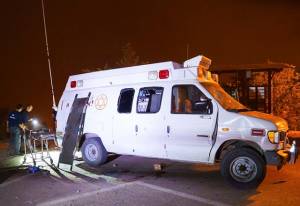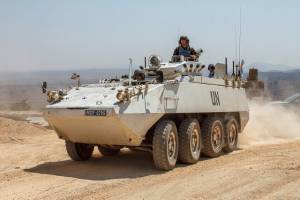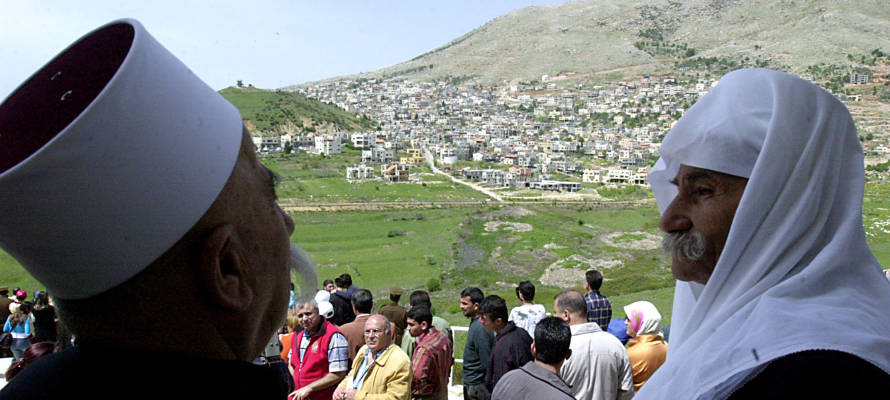
An Israeli ambulance attacked by Golan Druze while transporting injured Syrians. (Basel Awidat/Flash90)
Israel is providing humanitarian aid to Syrian rebels on condition that they do not harm the Druze minority and that they keep their distance from the border.
Israel confirmed for the first time on Monday that it is providing direct assistance to rebel groups in Syria. The humanitarian aid is being given on condition that the rebels do not harm the Druze minority in Syria and that they avoid fighting along the border with Israel. The UN Security Council passed a resolution Monday warning that fighting between Syrian and rebel forces in the buffer zone between Israel and Syria could escalate tensions with Israel.
Defense Minister Moshe Ya’alon told diplomatic correspondents at IDF headquarters in Tel Aviv, “It is no secret that those who are close to the border on the Syrian side of the Golan Heights receive humanitarian assistance from Israel, such as medical treatment, on the condition that they do not allow terror organization to approach our border. Our second condition is – you will not touch the Druze. The harsh calls of the Druze in Israel to assist their brothers in Syria and to transfer weapons to them does not serve the interests of the Druze within Syria.”
Ya’alon noted Israel’s “sensitivity” to the matter of the Druze. Approximately 10% of the Druze population in the Golan Heights has accepted Israeli citizenship. Israel and Syria coordinate several times a year to allow the Druze to cross the border, generally for the purpose of religious pilgrimage or study at the University of Damascus. Brides may also cross the border to get married, and apples grown by the Druze in the Golan are exported annually to Syria.

UN peacekeeping forces in the Golan. (Flash90)
Ya’alon’s comment about avoiding the border was echoed in a unanimous resolution by the UN Security Council extending the mandate of the UN Disengagement Observer Force in the buffer zone between Israel and Syria. The resolution warned that “the ongoing military activities conducted by any actor in the area of separation continue to have the potential to escalate tensions between Israel and the Syrian Arab Republic, jeopardize the ceasefire between the two countries and pose a risk to the local civilian population and United Nations personnel on the ground.”
It further stated that the Security Council would consider sanctions against “individuals, groups, undertakings, and entities providing support to the Islamic State or to the Al-Nusra Front, including those who are financing, arming, planning, or recruiting for ISIS or the Al-Nusra Front and all other individuals, groups, undertakings, and entities associated with al-Qaeda.”
Mortars from Syria have landed within Israel on numerous occasions, usually due to misfires. Israel has generally refrained from retaliation, although it has conducted some strikes against security threats within Syria. The two sides came close to war in January when Israel targeted a Hezbollah cell, killing six terrorists, including the son of Hezbollah operations chief Imad Mughniyeh and an Iranian general.
By: Sara Abramowicz, United with Israel
